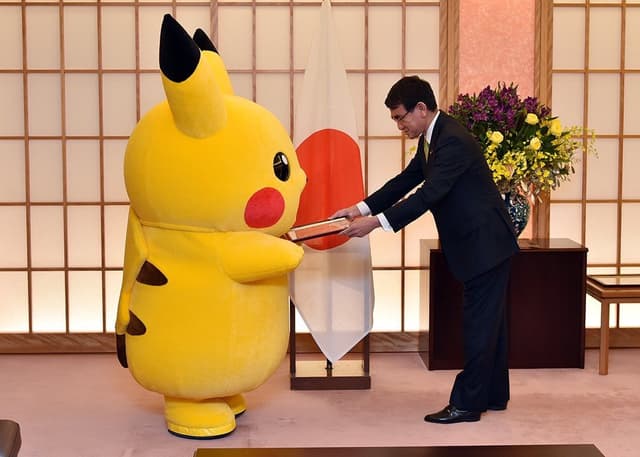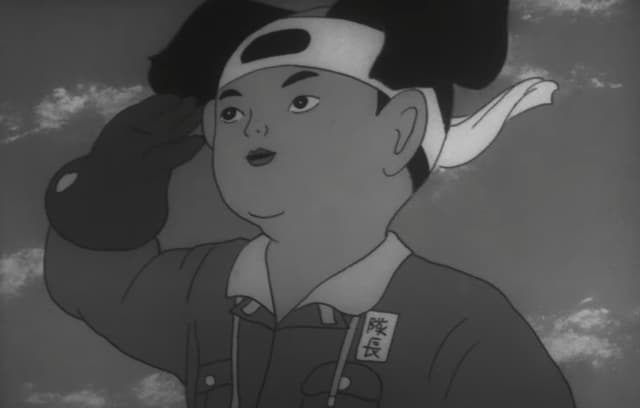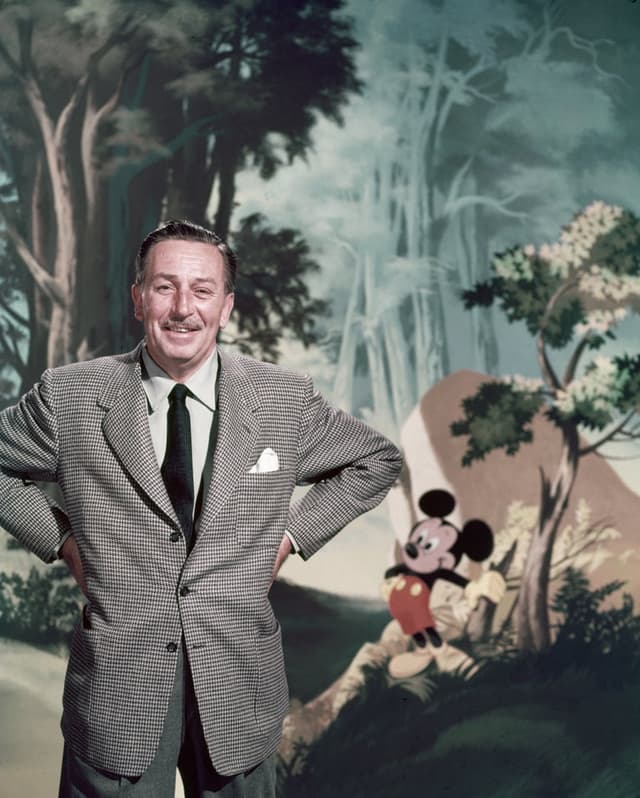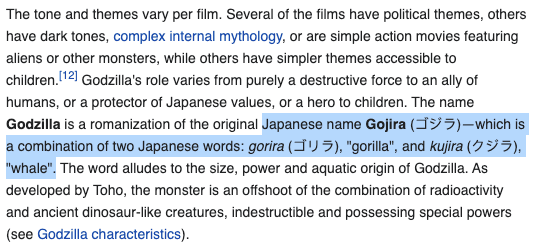🧵 View Thread
🧵 Thread (17 tweets)

I'm going to look this up, but I'd love to hear some anecdotal thoughts and responses: why were robots, cyborgs, Transformers, Astro Boy, etc such a big hit in Japan? Akira, Ghost In The Shell – these are legendary now, but what were their origins? Post-war Industrialization?

Anecdotally: Post-War Japan, after having atomic bombs dropped on them, rapidly modernized – making leapfrog developments in infrastructure and hardware. In the 80s they seemed like they could be the next global superpower (comments from /r/cyberpunk) https://t.co/vk3tIfuQfl https://t.co/bB9IFhU9T9
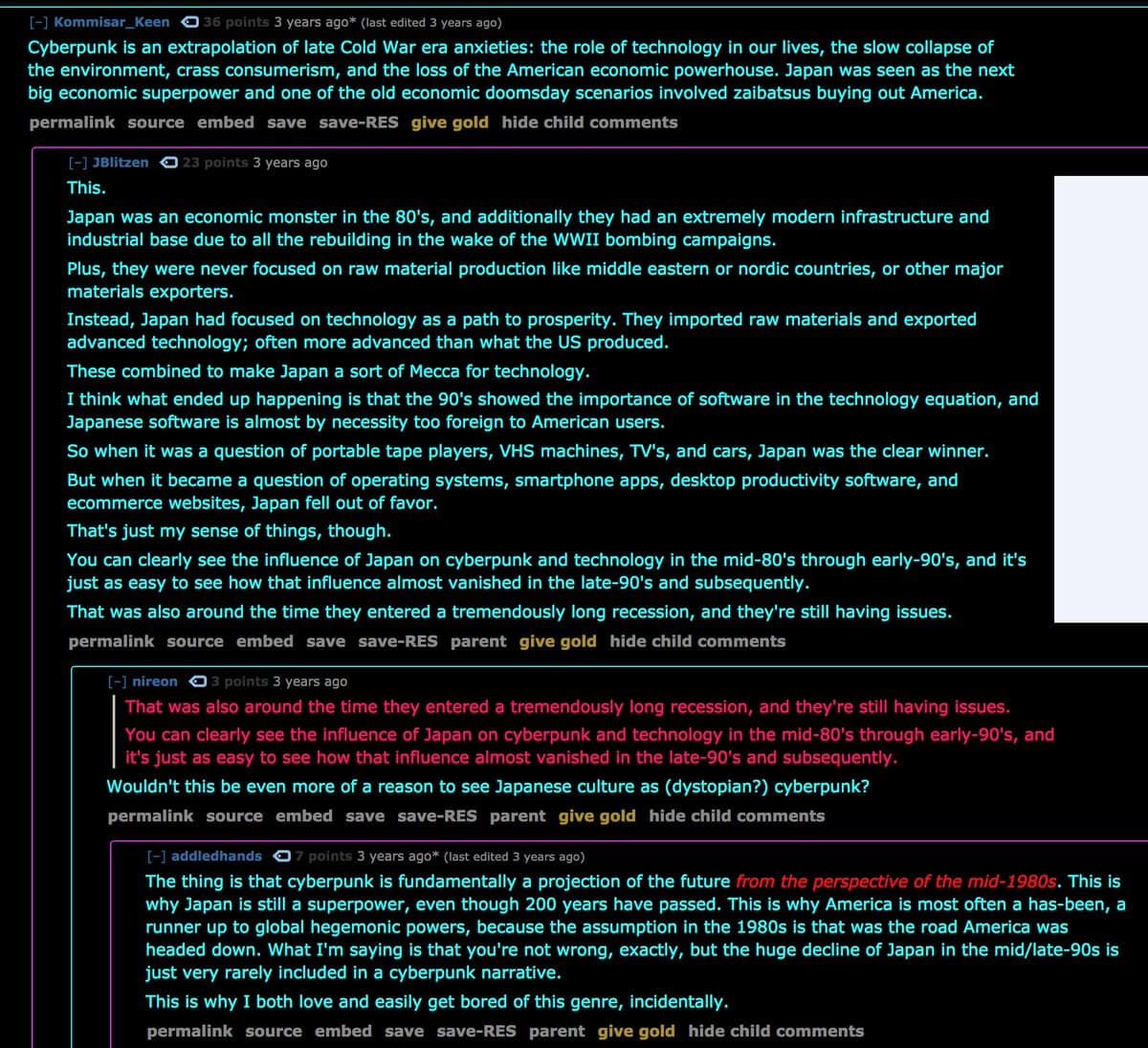

"While Astro Boy wasn't a giant robot, 1956's Tetsujin-28 was. The manga was inspired by the U.S. firebombing of Kobe and the notion of top secret super weapons." https://t.co/E9a3Sepq5a

Life-sized Gundam models are really something to behold. A monument to human imagination and contemporary storytelling. https://t.co/3t8UJQWXNt
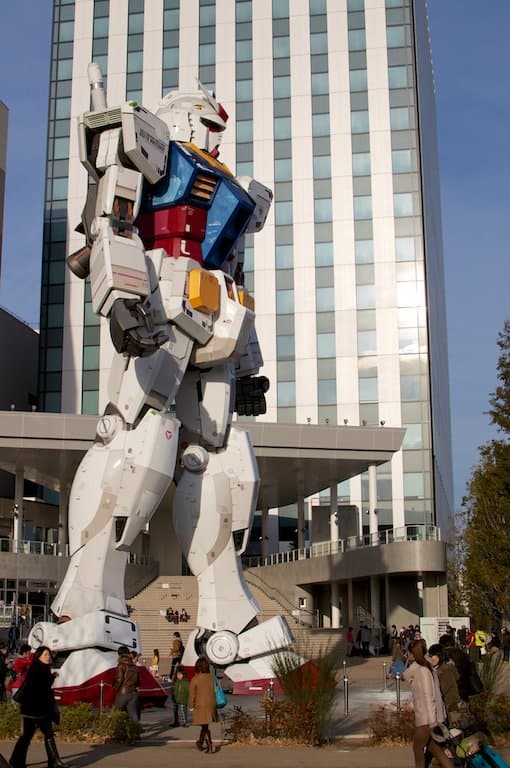

"What is humanity? [...] To over-simplify slightly, Akira is about losing humanity and Ghost in the Shell is about finding it; Akira explores its themes externally while Ghost in the Shell is all about looking inward." https://t.co/YLvSQrcAAS

Akira's director Katsuhiro Otomo's answer to "what book had the greatest impact on you": HG Wells' War Of The Worlds (1887) – which was about a Martian invasion on Victorian England, and often considered to be a commentary on British Imperialism https://t.co/oP9D0PPmOj

''Japanese don't make a distinction between man, the superior creature, and the world about him. Everything is fused together [...]. We have none of the doubting attitude toward robots, as pseudohumans, that you find in the West.” https://t.co/vq8EqIhKbz


architecture https://t.co/LH9O33vaxI

A collision between flesh and metal, the sub-genre is an explosion of sex, violence, concrete and machinery [...] post-human nightmares and teratological fetishes, powered by a boundaryless sense of invasiveness and violation." https://t.co/lu2GB6zwmG https://t.co/FgH1l40z7N
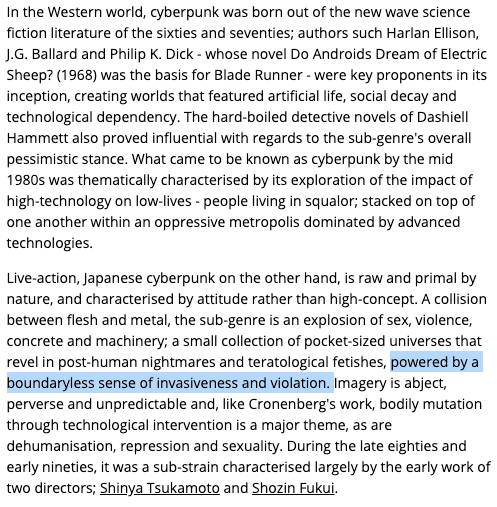


Example: Hayao Miyazaki was born in 1941, and survived a WWII bombing when he was 4, which deeply affected him. Once you start looking for this in his movies you see it everywhere (spoilers) - e.g. the superweapons in Nausicaa and Castle in the Sky. https://t.co/RrVxD3jZdx
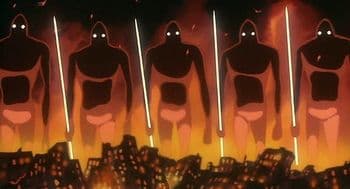

Godzilla thread https://t.co/jvl4SoxdIw

12. Sony 📻📺🎧🎮 https://t.co/EN7EAFuEfW

Sony's story begins with Masaru Ibuka [1908–1997]. He graduated from Waseda in 1993, worked in movie film processing, then served in the Navy as a researcher during WW2. After WW2, he started a radio repair shop in the bombed out Shirokiya Department Store in Nihonbashi, Tokyo https://t.co/vppPIzBu0Z
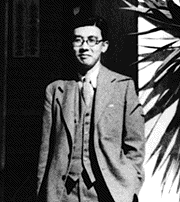

13. thread about the man who wrote my favorite poem https://t.co/tqEXy0AwDl

14. samurai facts https://t.co/t8HiJ49WMa

15. Trends of Fiction in 2000s Japanese Pop Culture (h/t @Aelkus) – recurring theme of eroding "middle ground", communal spaces, psychological public commons. lots of apocalyptic scenarios, or otherwise situations with absent social structures https://t.co/IDhYwfAIWX


Only one country comes close to disrupting U.S. hegemony in global popular culture: Japan. But why them? Because popular culture isn't a subjective art form but an industrial export Japan's military funded for WWII propaganda to defeat Disney. A 🧵 on industrial pop culture: https://t.co/Cp63lh5Q3O
